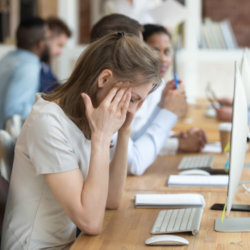To provide the best experiences, we use technologies like cookies to store and/or access device information. Consenting to these technologies will allow us to process data such as browsing behaviour or unique IDs on this site. Not consenting or withdrawing consent, may adversely affect certain features and functions.
The technical storage or access is strictly necessary for the legitimate purpose of enabling the use of a specific service explicitly requested by the subscriber or user, or for the sole purpose of carrying out the transmission of a communication over an electronic communications network.
The technical storage or access is necessary for the legitimate purpose of storing preferences that are not requested by the subscriber or user.
The technical storage or access that is used exclusively for statistical purposes.
The technical storage or access that is used exclusively for anonymous statistical purposes. Without a subpoena, voluntary compliance on the part of your Internet Service Provider, or additional records from a third party, information stored or retrieved for this purpose alone cannot usually be used to identify you.
The technical storage or access is required to create user profiles to send advertising, or to track the user on a website or across several websites for similar marketing purposes.
 New research from CWJobs claims the UK tech skills gap is set to narrow. Surveying over 2,000 professionals, comprising of 1,120 tech workers and 1,026 non-tech workers, the report suggests that over half (55 percent) of non-tech workers contemplating a career change have considered or have begun the process of moving into a tech-based role, with almost one in 10 (8 percent) having already made the move. (more…)
New research from CWJobs claims the UK tech skills gap is set to narrow. Surveying over 2,000 professionals, comprising of 1,120 tech workers and 1,026 non-tech workers, the report suggests that over half (55 percent) of non-tech workers contemplating a career change have considered or have begun the process of moving into a tech-based role, with almost one in 10 (8 percent) having already made the move. (more…)








 After a multi-year global consultation, the World Green Building Council (
After a multi-year global consultation, the World Green Building Council (




 Millions of Brits give up more than a month of time each year by working additional unpaid hours, totalling five years overtime in their working life, according to new research by
Millions of Brits give up more than a month of time each year by working additional unpaid hours, totalling five years overtime in their working life, according to new research by 
 Cloud-based access control company
Cloud-based access control company 


 Over half (52 percent) of UK workers think we will see a “reverse brain drain” of talent migration away from big cities like London and Manchester towards regional areas as a result of COVID-19, according to latest research from the
Over half (52 percent) of UK workers think we will see a “reverse brain drain” of talent migration away from big cities like London and Manchester towards regional areas as a result of COVID-19, according to latest research from the 


 A new survey conducted by
A new survey conducted by 
 According to new data from people success platform
According to new data from people success platform 








October 29, 2020
Workplace culture is not something to be changed with hashtags
by Kirsty Ritchie • Comment, Wellbeing